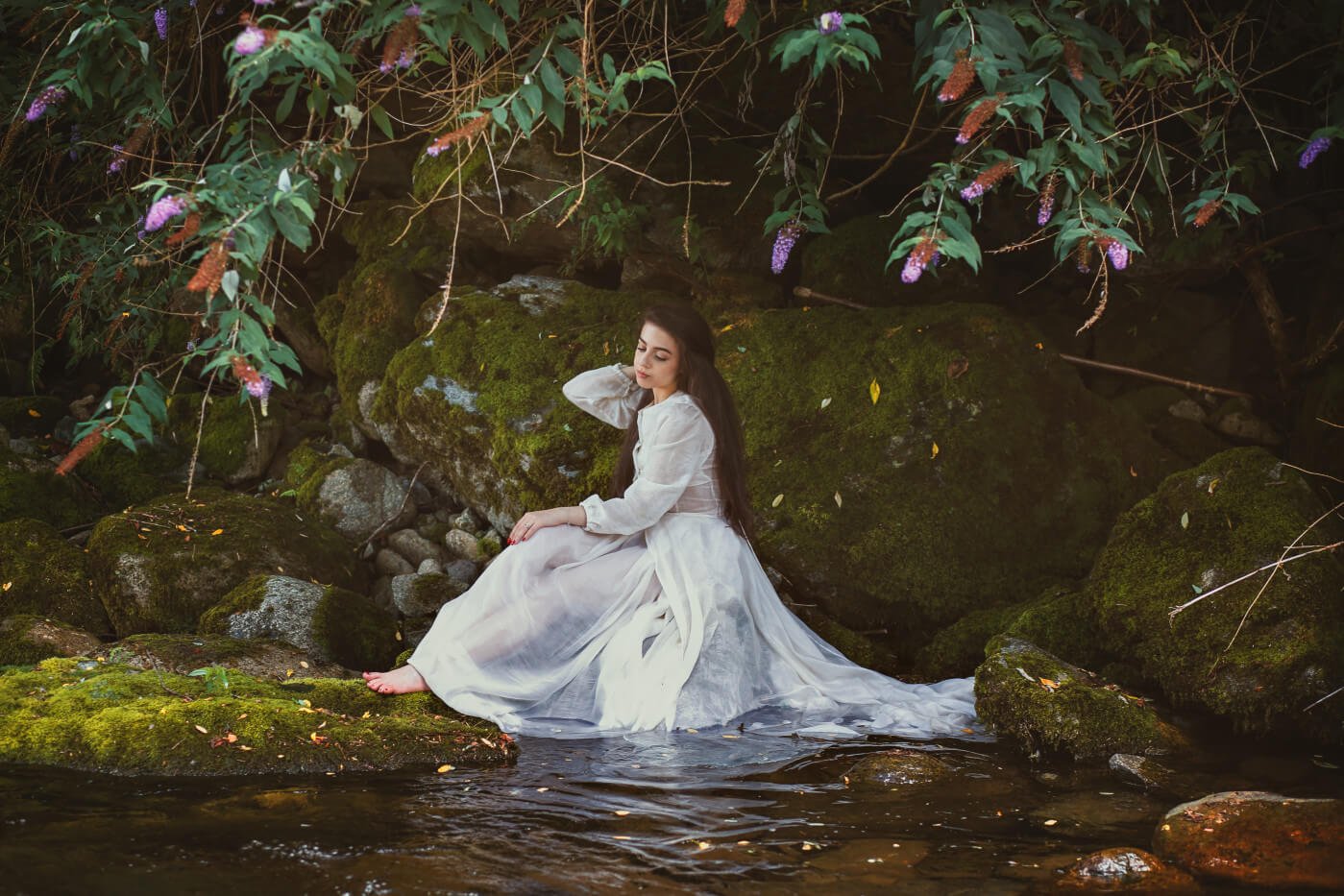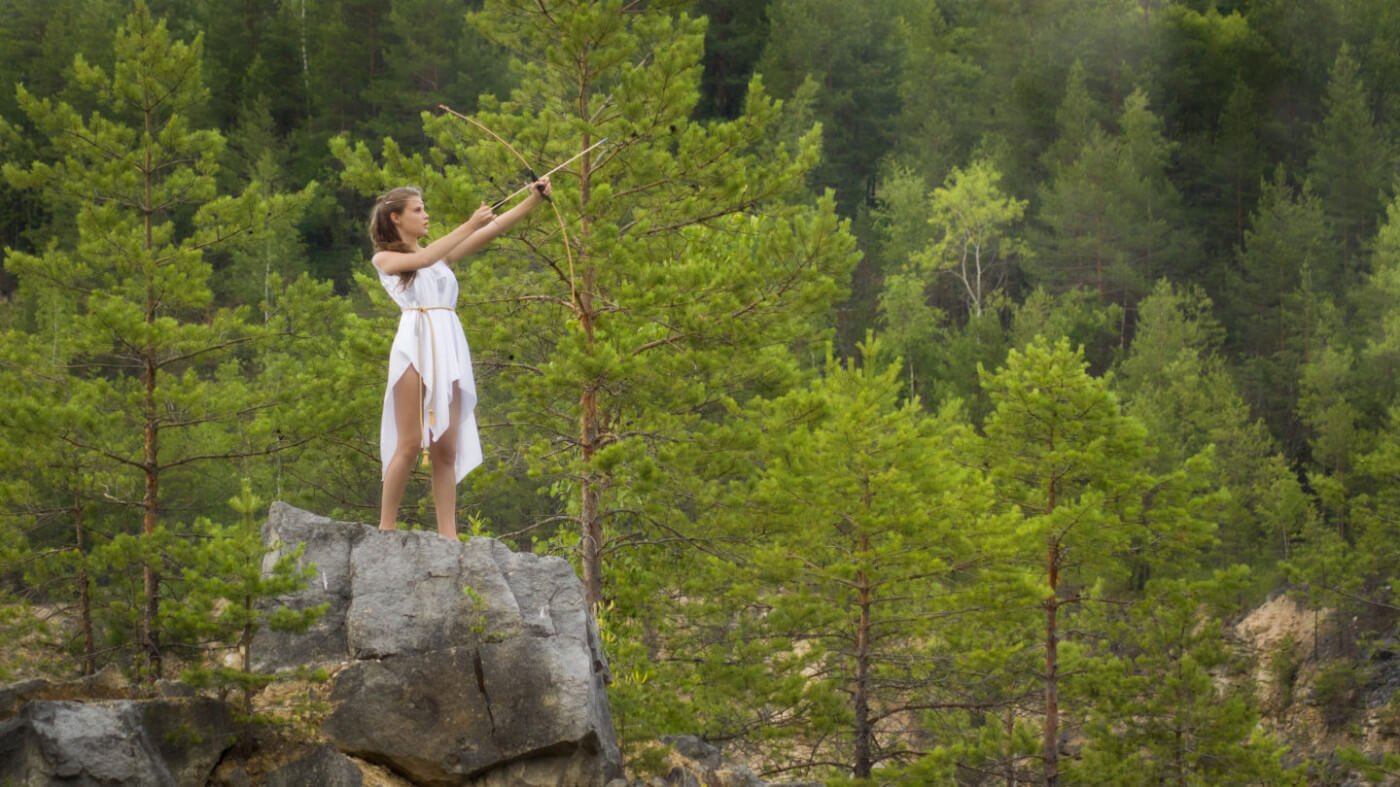Gather round for the story of Apollo, Daphne, and the archer known as Eros...
A god of passion and romance, Eros was no stranger to the intoxicating power of love. But, many times, what we believe to be love, turns out to be lust in disguise. Because while love is tender and patient, lust is an all-consuming, heart-pounding race to self-gratification. And despite Eros’ allure and innocent demeanor, the god had a habit of using his enchanted arrows as weapons. Instead of letting love root, grow, and bloom as nature intended, Eros cast ‘love’ spells on his adversaries and anyone who treated him like a child. When the young god shot an arrow at Apollo, causing him to fall in love with Daphne, Eros proved, once again, that our thirst for another can inflict more poison than pleasure. Love cannot be forced or coerced if we want it to endure, it must be given freely.
This is a lesson that everyone must learn, whether they be mortal, monster, or the mighty solar deity, Apollo.
As the god of prophecy and poetry, Apollo was not used to rejection. Living atop Mt. Olympus guaranteed he had his fair share of admirers (and enablers), and like other divine beings, he was a bit self-centered. Apollo believed that his beauty, combined with a knowledge of medicine, music, and archery, made him the perfect partner. But when it came to Daphne, a water nymph who had no desire to marry, this is where things went awry.
You see, Daphne was a follower of Apollo’s twin sister, Artemis. As one of the moon goddess’s disciples, Daphne spent her days exploring the woods and learning the ways of the huntress. Men, mundanity, and the confines of marriage were of no interest to her.
Eros knew this, of course, for the god of love sees everything we desire. So when Apollo insulted his fellow archer, ridiculing Eros’ age and tiny bow, Eros decided to use Daphne’s preferences to his advantage.
As payback for insulting the god of love, Eros dipped an arrow in something golden and sticky before shooting it at Apollo. The arrow hit the god directly in the heart, and while it did not wound him physically, Apollo was never again the same. As the arrow worked its magick on the god, Eros turned his attention to Daphne. Instead of dipping her arrow in the same mysterious, golden substance he’d used for Apollo, Eros attached a lead point to the tip. This way, when the arrow made contact with Daphne’s chest, she wasn’t consumed by admiration or an explosion of passion, but by disgust.
As the minutes ticked by, Apollo became more and more enamored with the nymph. From his perch in the sky, Apollo saw the lovely girl hunting with other maidens in the forest. Whether he was unable to control himself due to the poisonous arrow, or whether he used Eros as an excuse for what happened next is up for debate, but either way, Apollo ran towards the girl, and the chase was on.
Daphne was not a goddess of prophecy, but she was a follower of Artemis. Her intuition was intact, so when she realized Apollo was closing in on her and had no intention of respecting her boundaries, she fled.
As she ran through the trees, hopped over boulders, and dodged low-hanging branches and brambles, Daphne called on Gaia, Artemis, and her beloved moon. She appealed to the huntresses and guardians, even the birds and other spirits of air. Each time her foot met the earth, she sent a prayer down into the soil asking for an escape – whatever that looked like, she didn’t care.
But it seemed the faster she ran, the closer Apollo got. In her current form, she was no match for the swift, persistent god of the sun. In a last-ditch effort to remain an independent, autonomous woman, Daphne called on Peneus, her father. She appealed to the river god, begging for a way, any way, to elude her pursuer.
It’s hard to know if her prayer was answered by Peneus, Gaia, Artemis, or the birds. Perhaps it was a joint effort. Because the moment Apollo finally grabbed hold of Daphne’s hand, the girl had already begun to transform. Her feet turned to roots, her arms became branches, and a curtain of leaves replaced her long hair.
Apollo was startled by Daphne’s transformation, but even in tree-form, he still loved the nymph. When he embraced the tree and heard Daphne’s heart, still beating hard from their race through the woods, he knew that she had not left. As he ran his hands over her gnarled trunk, Apollo’s head began to clear. Like Daphne, he was disgusted with himself.
Although the girl had given up her human body for that of a Bay Laurel tree, Apollo promised that her sacrifice (and his unsavory behavior) would not be forgotten. From that day onward, Apollo wore a bay leaf pinned to his vest – not only to remember Daphne, but to atone for his role in her demise. Today, Laurel leaves are symbols of courage, poetry, prophecy, and because they never wilt regardless of season, everlasting devotion.










